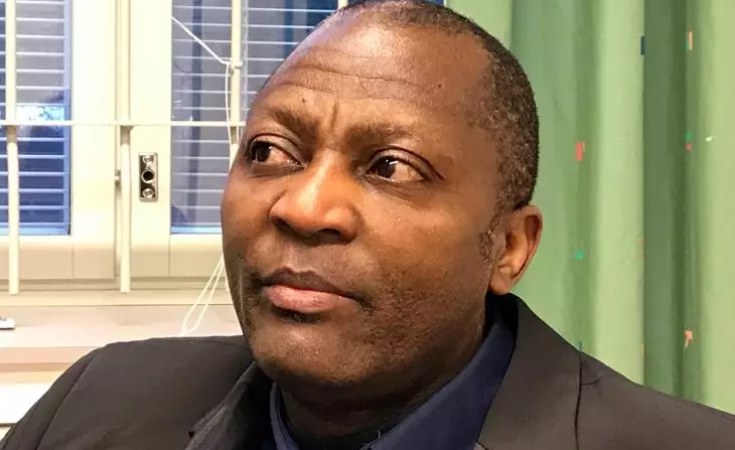The witnesses claimed Mr Massaquoi and other RUF soldiers came to Liberia to provide a backup for forces of then-President Charles Taylor.
Two more ex-soldiers of the Liberian government have told a Finnish appeals court in Monrovia that Gibril Massaquoi, a former commander of Sierra Leone's Revolutionary United Front (RUF), was in Liberia during the country's second civil war in 2003, a major point of focus for these appeal hearings.
The witnesses, codenamed "X2" and "X6" by the Turka Court of Appeals (to protect them from reprisal), claimed Mr Massaquoi and other RUF soldiers came to Liberia to provide a backup for forces of then-President Charles Taylor in their battles against rebels from the Liberians United for Reconciliation and Reconstruction, who had laid siege on Liberia's capital, Monrovia.
"They were not station(ed) in one area," said X2. "General Yanai of the Igba group (another name for the RUF soldiers), and one angel Gabriel are the people, I am familiar with. I saw them in waterside, but we never use to go closer to them because they were too fearful (fearsome)."
"Inside the store, there I saw the bodies, they open suppressive fire," said X6.
In April 2022, the Pirkanmaa District Court acquitted Mr Massaquoi, now 53, of charges of war crimes and crimes against humanity, including aggravated murder and aggravated rape on grounds that prosecutors did not prove "beyond a reasonable doubt" that he did commit the crimes.
But during these appeal hearings, prosecutors are trying to prove that the lower court got it wrong and that Mr Massaquoi, who served as an informant for the Special Court for Sierra Leone, broke "safe house" rules by coming to Liberia to fight for Mr Taylor's forces during the war. Mr Massaquoi's testimony was vital for the convictions of Mr Taylor and other former RUF soldiers.
Prosecutors are also challenging that Mr Massaquoi was not called "Angel Gabriel", the other name their witnesses have called him by. And Thursday's witnesses looked to have solidified their argument by accusing Mr Massaquoi of ordering killings and rapes, days after another prosecution witness also accused the ex-RUF commander of ordering a Waterside massacre. The witnesses called Mr Massaquoi by the controversial nickname.
"They often moved with Benjamin Yeaten (commander of the elite presidential guard, Special Security Service, now Executive protection service)", said X2. "And every time they come and see people looting, they open fire. Angel Gibril was a senior officer of the Igba group but not the commander; soldiers always take order(s) from him."
"Salome and Gibril were standing. The next thing he told Glassco (my boss) it was Angel Gabril who told him to shoot in the store," said X6." I overheard angel Gibril saying, it was not me, it was the President (Taylor) that gave the order."
X2 accused Massaquoi of approving rapes
"Massaquoi order the raping of people, women and killing. Innocent women who were going to look for food for their children; they were sometimes forced by the soldiers who raped them against their will."
The killings, X2 claimed, were due to several factors, including looting by civilians and their violations of rules laid down rules by soldiers of the warring factions.
But he also accused soldiers of looting.
"Soldiers carried out looting. They took food from civilians sometimes, as well as their fellow soldiers. After the execution, soldiers destroy the store and they said no one should loot. If you violate, it was against the rule of the military and so execution was order(ed)."
As with the trial, inconsistent witness testimonies are also dogging the appeal hearings. And they seemed to have come up in X6's testimony.
On cross-examination, defence lawyers referred to his May 2021 statement to Finnish police investigators about the alleged killings to which he linked Mr Massaquoi. He then blamed it on a memory failure.
"My man, this incident take (took) place a long time ago. Sometimes you forget, sometimes you sit, it comes back to your memory."
The hearings continue on Friday.
This story was a collaboration with New Narratives as part of the West Africa Justice Reporting Project.


